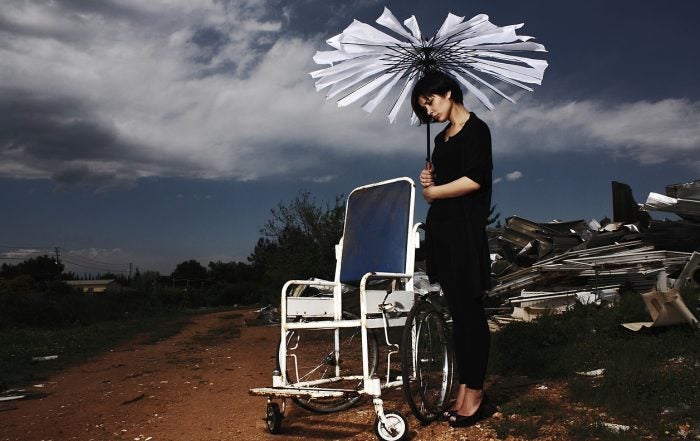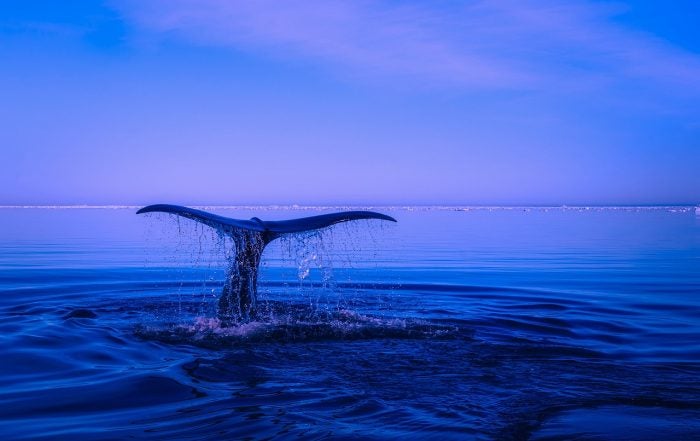Polylactic Acid as a Biodegradable Composite: A Review
By Madison Dougherty, Biochemistry and Molecular Biology, ‘18 Author’s Note: I wrote this paper for my UWP 104E class. I have always been interested in sustainability, and this paper provided me with an excellent outlet for researching methods related to environmentally friendly packaging options. In recent years, I have become increasingly aware of the harshness […]
Addressing Eutrophication: Algae as Wastewater Treatment and Potential Biofuel Source
By Sara Ludwick, Environmental Science & Management, ’19 Author’s note: In my Global Environmental Interactions class, we learned a lot about nitrogen and phosphorous as essential elements, but also as sources of eutrophication which threatens life in the ocean by disrupting food chains and causing anoxia. I decided to write a paper about the potential […]
A Conversation with Dr. Kate Scow: “I just totally lost my heart to soil”
By Sara Ludwick, Environmental Science and Management, 2019 Author’s note: I read about Dr. Scow’s research while looking for a faculty member to interview for a class assignment. She is a professor of Soil Science and Microbial Ecology at UC Davis, and her research emphasizes microorganisms’ roles in providing ecosystems services. Dr. Scow was featured […]
Ants Who Farm: The Evolution of Fungal Obligate Symbiosis
By Wren Greaney, History major, Biological Sciences & Community Development minor, ’17 Author’s note: “I started to look into entomological research as a result of learning about insect diversity in ENT100. I came across a study regarding ants’ fascinating advanced ability to cultivate fungi. I thought it was incredible that we have agriculture in common […]
A New Role for Mosquitoes in Disease-Outbreak Prevention
By Chantele Karim Author’s Note “I became interested in vector-borne diseases in Spring of 2016, when I conducted an independent study on the ethical advancement of genetically modifying technology. I discussed the potential application of CRISPR to mosquitoes, primarily Aedes aegypti, in the effort to combat dengue. Throughout my extensive research, the danger posed by […]
Review of Horizontal-flow and vertical-flow constructed wetlands’ efficiency to remove pathogen indicators in tropical area
By Yufei Qian, Environmental Horticulture and Urban Forestry, ‘18 Author’s Note: “As an international student, English is not my first language. I never felt such confidence writing in academic English before taking Professor Matthew Oliver’s UWP 104E class. This class is about writing in science, and the literature review is the basis of many scientific […]
The Consequences of Tropical Deforestation
By: Wincy Yu, Biological Sciences, ‘17 Author’s Note: In light of climate change and environmental talks among world leaders, as well as rising media attention for endangered species around the world, I realized that people were concerned about the consequences, but may not have paid attention to the underlying reasons. Inspired by an ecology class […]
A Bee Appreciation (and Awareness) Post
By Chantele Karim, Biological Sciences, ’17 Author’s note: “Over the past few years, I have noticed an increase in media attention directed toward bees. Although the presence of issues regarding bees in the United States was rather clear to me, their magnanimity remained largely obscure. Recently, I came across an article in The Economist on […]
UC Davis Hosts DataRescue Event To Archive Climate Research
By N. J. Griffen, English, ‘17 Author’s Note: “I chose to write about this topic as a response to one of the many uncertainties that exists under our newly elected president, Donald Trump. More specifically, this article is meant to encompass the nationwide effort by scientists, professors, researchers and archivists to safeguard, backup and protect […]
Life Science According to Trump: An Examination of Claims and Facts
By Wren Greaney, History major, Biological Sciences & Community Development minor, ’17 Author’s Note: “I decided to write this article on the Wednesday after the presidential election. After the long whirlwind of campaigning, it seemed that many unanswered questions lingered. Health is one of the most immediate concerns for many people, and when accurate information […]

